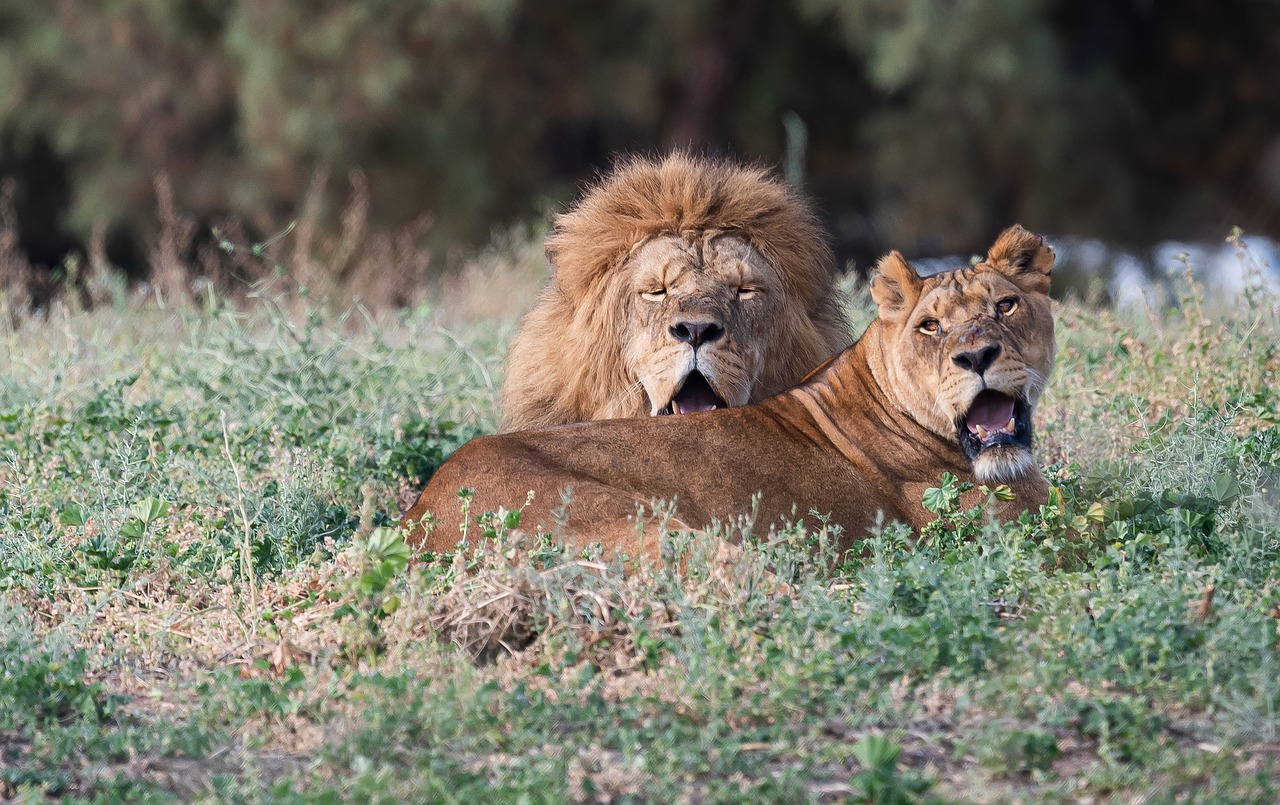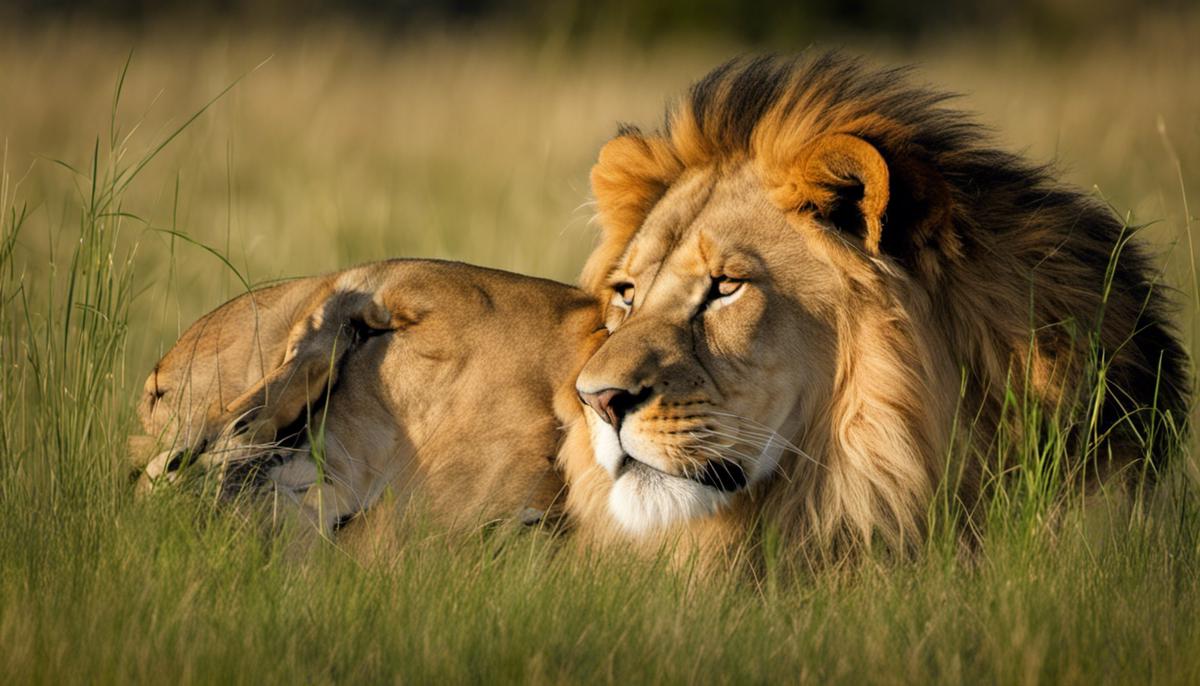Are lions friendly? Lions are not friendly animals. They are wild predators with strong territorial instincts and are known for their aggressive and potentially dangerous behavior towards humans and other animals. Approaching or attempting to interact with a lion in the wild is extremely risky and should be avoided at all costs for safety reasons.
For centuries, the lion, often known as the ‘King of the Jungle’ has inspired awe and admiration in humans around the globe. These majestic creatures captivate us with their imposing presence and sheer power, yet their interactions with humans have posed an array of questions. Are these magnificent predators friendly or simply misunderstood?
This exploration begins by delving into the typical behavior and temperament of lions in their natural habitats, followed by an examination of varying circumstances that may influence their perceived friendliness.
Further discussion concerns human-lion interactions throughout history, and finally, a comparative analysis with other large felines helps shed light on the complex character of the lion.
What is a Lion’s Behavior and Temperament like?
Lions exhibit fascinating behavior patterns and complex social structures. They are among the few big cat species that live in family units, or prides, which usually consist of related females, their cubs, and a small number of adult males.
This social structure allows lions to efficiently hunt their prey and protect their young from threats. However, they are also territorial by nature, defending their space against intruding lions.
Male lions especially display a high degree of aggression in protecting their prides and territories.
Lion’s Temperament
Contrary to what one might hope, lions aren’t generally friendly creatures. They have a broad range of temperaments with males often exhibiting aggression and dominance, while females generally play more nurturing roles within their pride.
These majestic creatures are primarily nocturnal, spending lots of their active hours hunting, and usually resting or sleeping during the day. Social within their own groups, lions aren’t prone to interact playfully or amiably with others outside their pride, including humans.
Their primary mode of interaction with other animals is through the predator-prey dynamic. Hence, though they are majestic and awe-inspiring, friendly might not be the right adjective to describe them.
Recognizing these unique behaviors offers us a deeper understating of lions, emphasizing the need to respect their boundaries when in the wild.
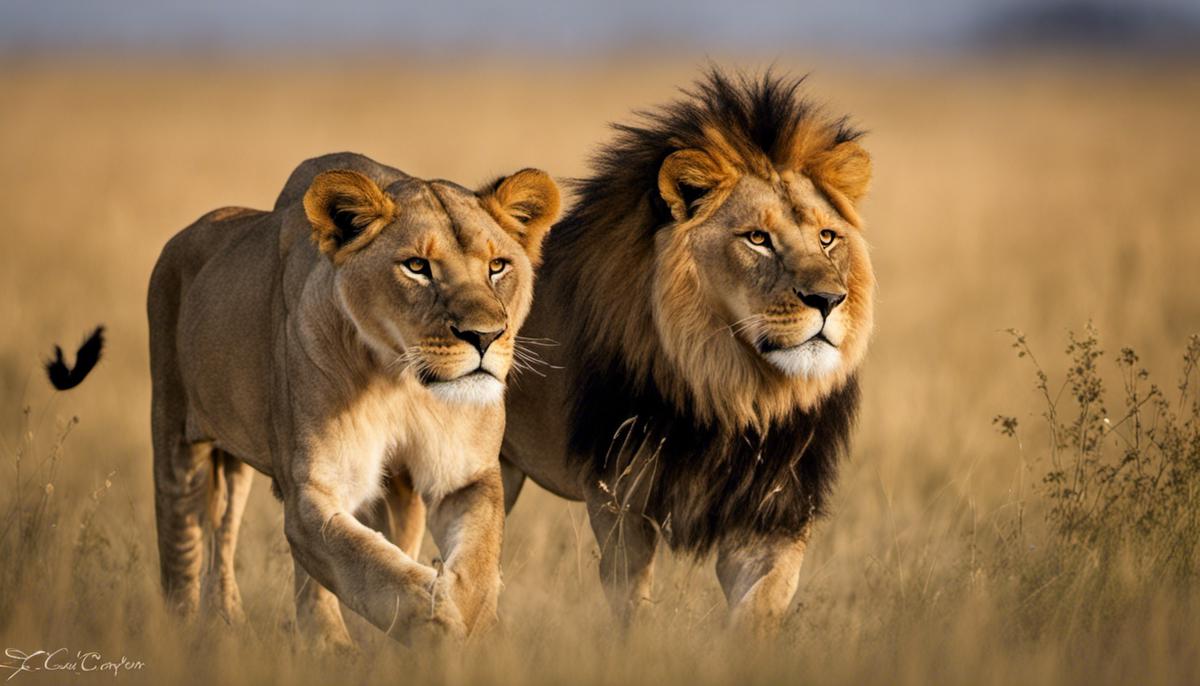
Are lions ever Friendly?
Interpreting Lion Behavior in Captivity and the Wild
Occasionally, captive lions might display behaviors that could be construed as ‘friendly’ or less intimidating. This is more often in controlled settings like zoos or wildlife parks where lions have regular and predictable interactions with human caretakers.
Regular human contact from a young age could condition these magnificent cats to portray less hostility towards humans. However, it’s key to remember that these behaviors are not indicative of genuine friendliness, rather it’s more about the lions adapting to a life in captivity.
Various situations such as feeding, resting, or being around their cubs could tweak a lion’s apparent friendliness. For instance, unless threatened, lions are less likely to behave aggressively during feeding and resting times.
Similarly, lionesses with their cubs could appear calm but could swiftly turn aggressive if they perceive a threat. Hence, factoring in these circumstances helps lend a more holistic understanding of lion behavior.
What Are Some Things That Could Affect a Lion’s Temperament?
Several elements such as age, health status, and past encounters with humans significantly influence a lion’s temperament. Compared to their older counterparts, younger lions are often more curious and less hostile, which may give them a seemingly friendlier demeanor.
Similarly, a lion’s health condition can impact its behavior; sick or injured lions may appear non-aggressive, but this is generally more due to their weakened state rather than inherent friendliness. Past human encounters also shape a lion’s future reactions.
If a lion has experienced negative situations with humans, it’s more probable that the lion will display increased aggression. Conversely, positive encounters may prompt less hostile conduct.
Nevertheless, we must always bear in mind that lions are wild animals with innate predatory instincts, necessitating caution and utmost respect at all times.
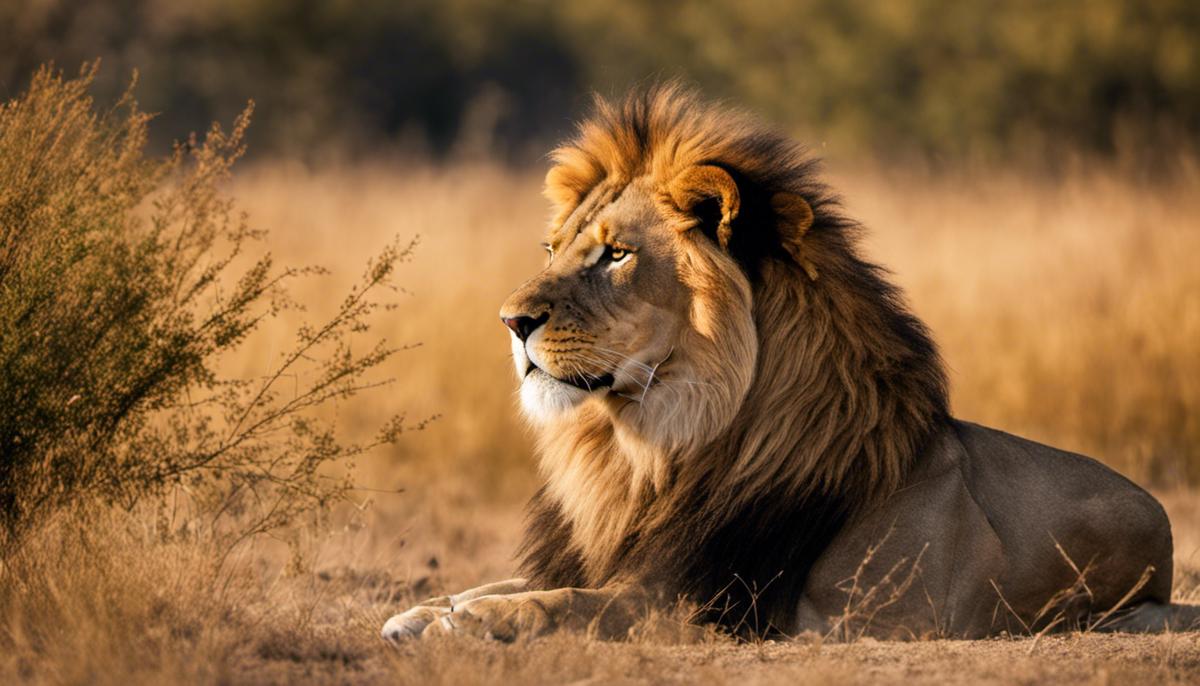
Lion-Human Interactions
The Historical Dynamics of Human-Lion Interactions
Looking back in history, various African tribes held a dual perspective of fear and admiration for lions, primarily due to their emblematic importance within their cultures. These interactions typically resulted in significant outcomes, especially in hunting contexts.
For instance, the Maasai tribe traditionally perceived the act of killing a lion as a significant milestone in their warrior’s journey. Despite this, lions are inherently unpredictable and potentially dangerous, often countering with aggression.
Such behavior further emphasizes that the concept of ‘friendliness’ should not naturally be associated with lions when it comes to interactions with humans.
Modern Encounters and Perspectives
In the contemporary world, many of these interactions occur in controlled environments like zoos, safaris, and wildlife rehabilitation centers. Zookeepers and handlers have often promoted relationships with lions, providing care, feeding, and sometimes creating bonds with individual lions.
Yet these relationships require time, patience, and a deep understanding of the animal, as lions are inherently predatory and wild. In contrast, there are reported incidents in the tourism sector where lions have attacked people, indicating potential danger.
Circuses and animal shows that feature ‘tamed’ lions are often misleading. Lions may exhibit tamer behavior due to conditioning or fear, or they might be sedated, not because of a natural inclination towards friendliness.
It’s important to understand that while some lions may interact and even coexist with humans due to conditioning or habituation, they are generally not friendly creatures. The concept of ‘friendliness’ is predominantly a human societal construct and applying it to lions might not accurately depict their nature.
As apex predators, lions can be dangerous and unpredictable. Therefore, it is critical to always exercise extreme caution when coming into contact with these majestic animals.
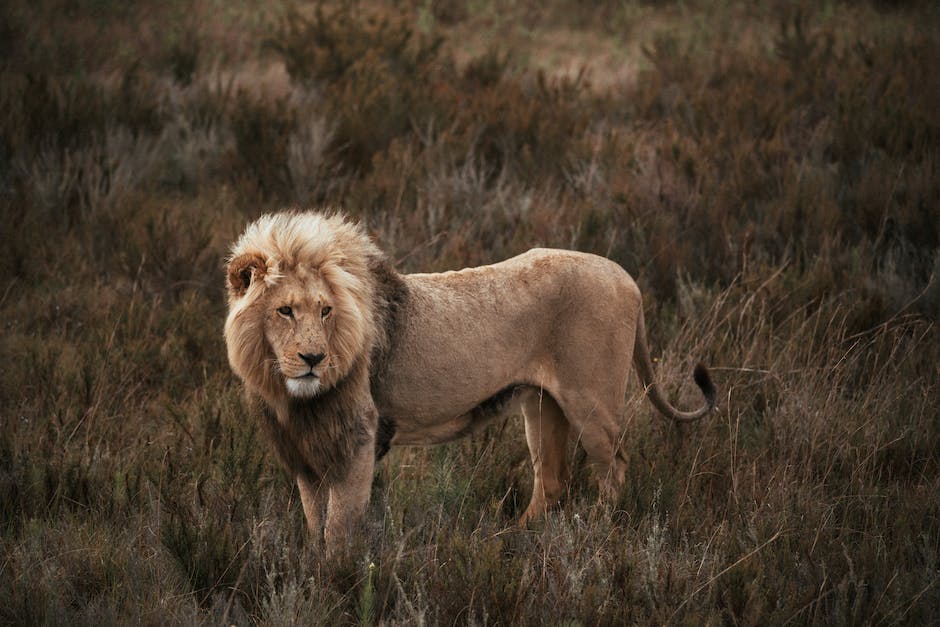
What Is a Lion’s Temperament Compared to Other Big Cats?
When compared with other big cats like tigers, leopards, and cheetahs, lions exhibit differing behavioral traits. Tigers, leopards, and cheetahs are known to show greater levels of territorial aggression and have a generally lower tolerance for any human or animal trespassing their territory.
Unlike these solitary species, lions live in a pride or social groups, allowing for cooperation and social bonding, traits not commonly seen in the more lone-wolf tigers and leopards. This lone wolf character of tigers and leopards often contributes to a stronger propensity for aggression when faced with unfamiliar or threatening situations, as opposed to the more social lions.
Are Lions Social?
However, this sociability in lions should not be mistaken as ‘friendliness’ towards humans or an indicator of lower aggression. Lions may not be as unpredictable or volatile as lone prowling tigers or leopards, but they are equally dangerous when threatened or disturbed.
It’s crucial to understand that all big cats are wild animals – instances of seemingly ‘friendly’ behavior should more accurately be considered as tolerance or indifference towards humans rather than actual affinity or affection.
Cheetahs are generally considered the most human-friendly big cats, but even they, like all big cats, can be unpredictable and should be treated with caution.
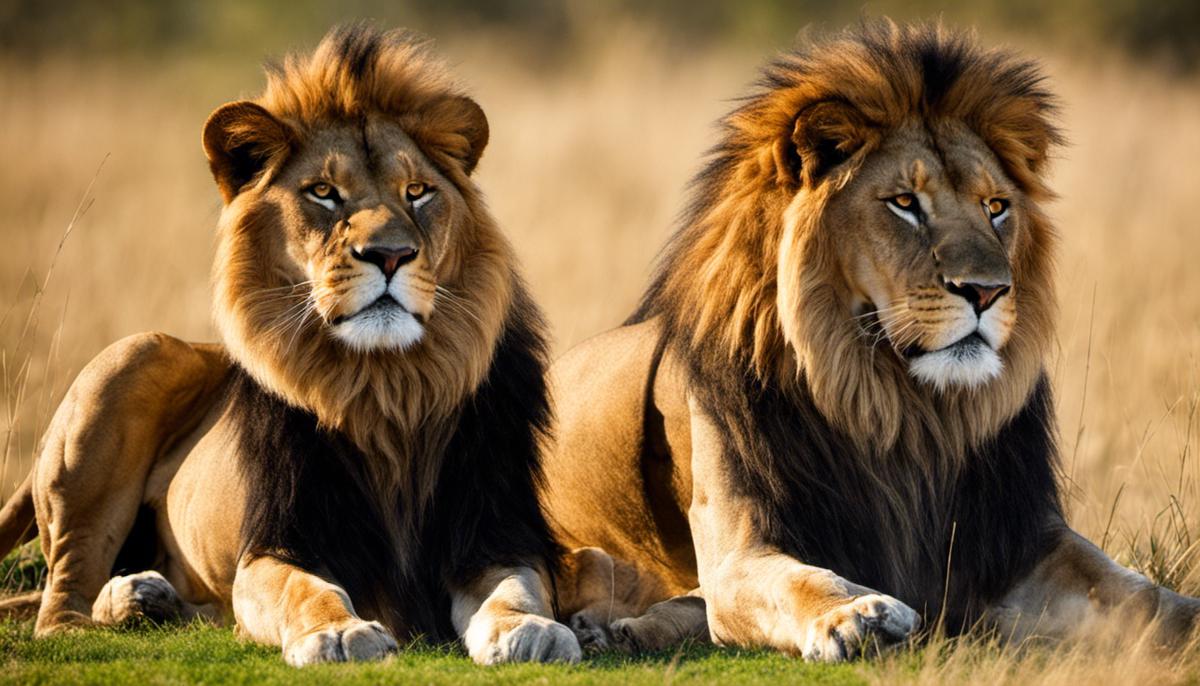
Frequently Asked Questions
Here are some common questions about lion temperaments:
Are lions aggressive towards humans?
Lions are wild animals with natural predatory instincts, and they can be dangerous to humans. In the wild, they generally avoid humans, but if they feel threatened or cornered, they may attack. There have been cases of lion attacks on humans, so it’s essential to exercise extreme caution and maintain a safe distance when encountering them in their natural habitat.
Can lions be a friendly pet?
Lions should never be kept as pets. They are not domesticated animals and have specific needs and behaviors that are incompatible with a typical household environment. Keeping a lion as a pet is not only unsafe for humans but also detrimental to the well-being of the lion, as they require vast spaces, a specialized diet, and social interactions with their own kind.
Just because people at zoos and other exotic animal parks have lions and other big cats and work with them daily does not mean that anyone can keep a lion as a pet. People who own, operate, or even just work at one of the exotic animal facilities are trained to work with lions and other exotic animals.
What do lions think of humans?
Lions do not possess thoughts or emotions in the same way humans do. They perceive humans as either potential threats or sources of food when they encounter them in the wild. They don’t have complex thoughts or feelings about humans; their actions are primarily driven by survival instincts.
Do lions like being petted?
No, lions do not enjoy being petted. They are wild animals and not domesticated like dogs or cats. Physical contact with a lion can be stressful for them and may result in defensive or aggressive behavior. Attempting to pet a lion is dangerous and should never be done.
Are tigers friendly towards humans?
Tigers, like lions, are wild animals and are not naturally friendly towards humans. They have the potential to be dangerous, and interactions with them, especially in the wild, should be approached with caution. Captive tigers can become accustomed to human presence to some extent, but they should still be treated with respect and considered potentially dangerous.
What to do if a lion approaches you?
If a lion approaches you, it’s crucial to remain calm and avoid running. Running can trigger the lion’s predatory instincts. Make yourself appear larger by raising your arms, and if you have children with you, pick them up to keep them safe. Back away slowly without turning your back on the lion.
Maintain eye contact with the lion if possible and speak firmly in a loud, authoritative voice to try to scare it away. Do not crouch down or bend over, as this can make you appear smaller and more vulnerable. If the lion attacks, fight back aggressively using any available objects or your bare hands to protect yourself.
Final Thoughts
In my exploration of whether lions are friendly, it’s clear that these majestic creatures are not naturally friendly toward humans. Lions are wild animals with instincts and behaviors that differ significantly from our domesticated pets.
While they may occasionally display seemingly friendly behaviors in certain controlled environments, it’s vital to remember that they are, at their core, wild predators. Interacting with lions should be approached with caution and respect for their nature.
Attempting to treat them as friendly companions can lead to dangerous consequences for both humans and the lions themselves.

